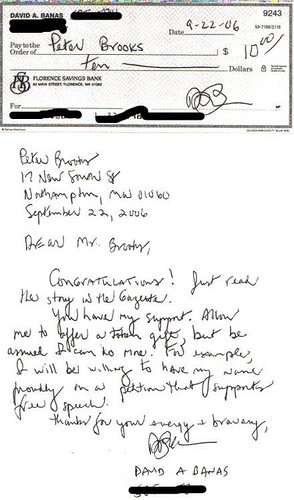We merely note for the time being that based upon our personal experience undesirable secondary effects do not result from the mere presence of adult establishments. Indeed, in the West Village of New York City, sexuality in all its variety is openly celebrated, but the West Village also happens to be one of the most desirable neighborhoods in New York City to live and raise a family - and businesses, including flower shops, thrive there, too.
The Myth Of Secondary Effects
by Mark Kernes, Senior Editor, AVN
Ever since the U.S. Supreme Court's decision in Renton v. Playtime Theatres, Inc., 475 U.S. 41 (1986), municipalities across America have been given the power to limit the number of adult businesses in a community, as well as to severely regulate their location, hours of operation, floor space devoted to adult materials and several other ordinary business decisions, based on the "secondary effects" which adult businesses are alleged to have on the community around them.
Among the "secondary effects" which adult businesses - bookstores, video stores, cabarets and even Internet servers - are reputed to have are a decrease in property values, an increase in crime and, in some cases, an adverse effect on community health in and around the businesses' locations.
Moreover, the Renton decision allows a municipality to use not only whatever experience it may have with its own adult businesses, but also - or exclusively - studies done of the experiences other communities claim to have had with their adult businesses.
(Full Text of Article at the Free Speech Coalition's website)

